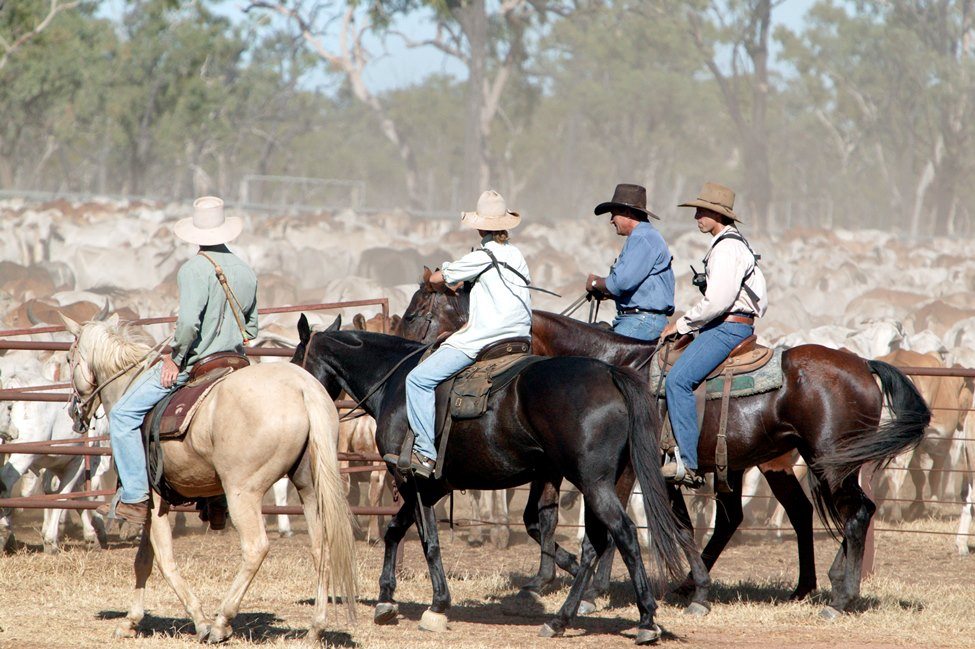Latest listings on Jobs Central recruitment page:
- Outstation Manager – WA (Jumbuck Pastoral)
- Crop Assessors (Crawford Agriculture)
- Feedlot Operations Manager (Angus Pastoral Co)
- Animal Health Attendant – Prime City Feedlot (JBS)
- Property Operations Manager – Mixed Farming (Maranoa region)
- Head Stockperson, Lakes Creek (Teys Australia)
- Farm Manager – Liverpool Plains (Rimfire Resources client)
- Livestock Leading Hand, Caroona Feedlot (JBS Australia)
- Territory Manager – Central NSW (Advanced Animal Nutrition)
- Property Manager (Cunningham Cattle Co)
Click here to access these and other jobs currently listed on Jobs Central.

EMPLOYING the right staff can be a challenge for small agribusinesses. Getting the right cultural fit, using the relevant recruitment tools and knowing how much to pay are just a few of the hurdles when it comes to expanding your team.
Many businesses have started benefiting greatly from employing staff aged over 50, the so-called ‘Baby Boomer’ generation.
It’s not only skills and expertise that an older worker can bring to the business – it’s also a financial benefit. During the latest budget the Australian Government’s Restart program now offers a wage subsidy to hire and retain older staff.
And it is no longer newsworthy to note that Australia‘s population is ageing: we are living longer and having fewer children, and the demographic ‘lump’ of the baby boomer generation is just beginning to reach the traditional retirement age.
Here are some ways we foresee agribusinesses benefiting from starting to embrace the employment of older staff with the potentially added financial bonuses.
Upskill and retain experience
Mature age workers bring a diversity of perspectives and a large network to small business, and hiring someone over 50 often makes sense. Older workers have formed relationships which are long lasting and can often be beneficial to the business they are employed at. There are a lot of roles across the red meat and livestock supply chain that are eminently suitable to older candidates.
Employing older workers and upskilling existing staff aged over 50 is invaluable tool for growth. And a funding boost from employing a mature worker can help finance training programs.
Create an ambassador program
Older workers are likely not only to bring a wealth of experience to a business but also a very different attitude. The fact that they are less worried about money and also career growth generally makes them more grounded in the job they are doing – allowing them to focus on the work and master it, rather than being distracted by the next job.
The wage subsidy is a smart initiative that could allow businesses to drive growth in the 50-plus market, and can be used to introduce an ambassador-based role to inspire confidence and trust from existing and potential clients, many of whom fall into the 50-plus age bracket.
Make mentoring a mainstream business option
Many agribusinesses would agree that there needs to be a greater focus on upskilling and diversity within teams. This allows workers of all ages to learn new skills, even if they have had the same role for 20 years and don’t think they can change career paths. It is also a good way to be more collaborative and innovative – you never know the where the next idea could take your business.
Usually there is support in companies around professional development around the person’s job, but there needs to be greater support to diversify the skill sets of your employees and get them to have learning mindsets.
Establishing an in-house mentoring program is a great way for older staff to upskill and remain highly relevant within a business, even as the technology which shapes it adapts and changes. It would allow them to learn from younger colleagues but also impart the wealth of their industry knowledge.
Increasing the meat and livestock industry workforce participation rate of older workers will, of course, rely on a mix of Government-driven and workplace-driven initiatives. We believe it is time for employers to take advantage of the contribution that older workers can make by looking to the following four opportunities:
- Increasing Productivity: Successful organisations appreciate the business case for engaging and retaining older workers in order to ensure current and future productivity.
- Moving beyond Stereotypes: Organisations which strive to engage and retain older workers understand the impact of age discrimination as a barrier to older workers ‘participation.
- Investing in Flexibility: Successful organisations build flexibility into the workplace and facilitate flexible careers suitable for older workers.
- Training for the Future: Organisations can lay the path to future success now by providing training and professional development for older workers.
To take advantage of the opportunity, employers and managers need to appreciate the valuable resource represented by older workers, and the close connection between engaging and retaining older workers and their organisation‘s productivity and profitability into the future. This is a question of understanding the specific impact on the organisation of the ageing population.

HAVE YOUR SAY